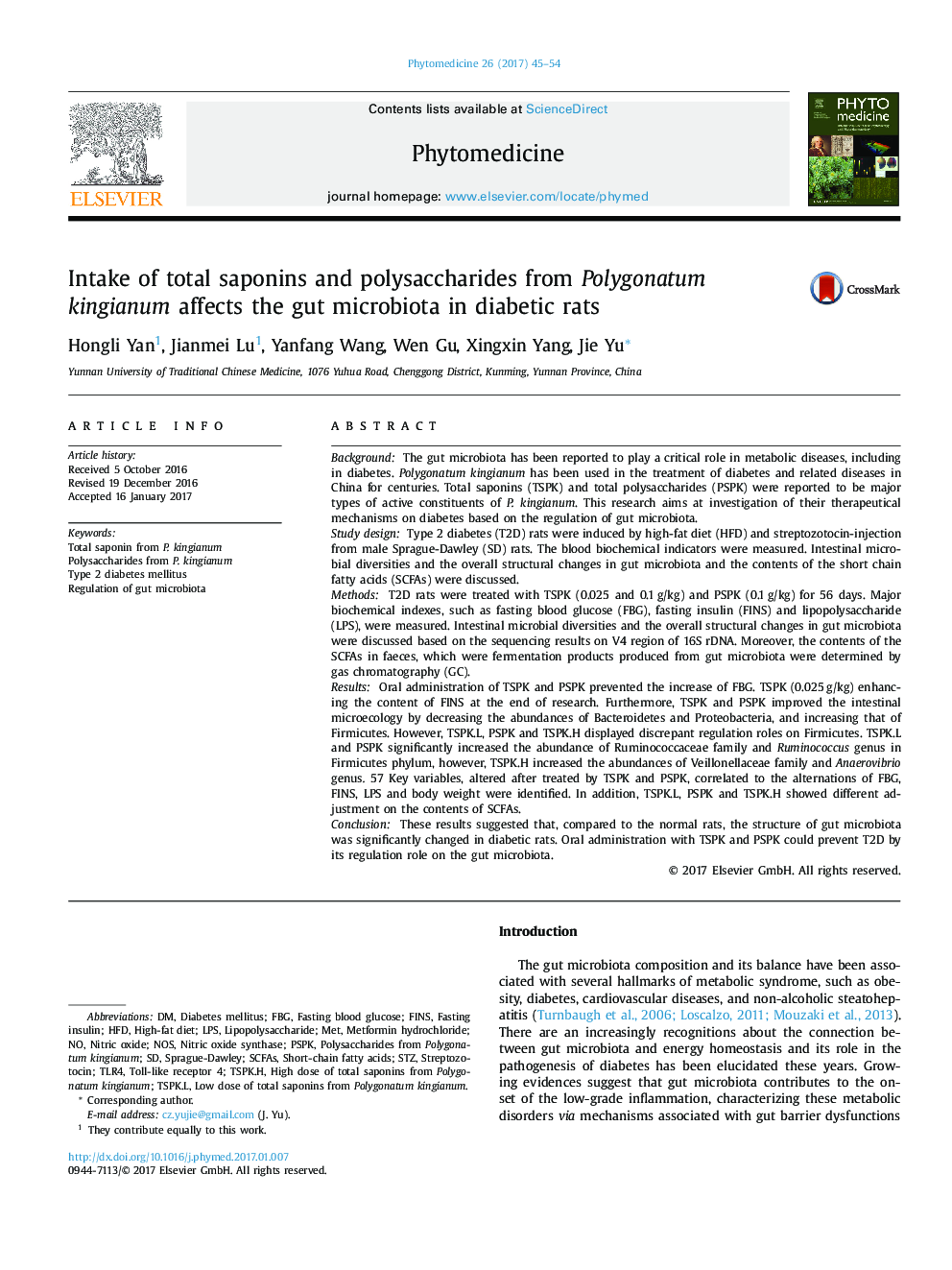| کد مقاله | کد نشریه | سال انتشار | مقاله انگلیسی | نسخه تمام متن |
|---|---|---|---|---|
| 5549356 | 1556693 | 2017 | 10 صفحه PDF | دانلود رایگان |

BackgroundThe gut microbiota has been reported to play a critical role in metabolic diseases, including in diabetes. Polygonatum kingianum has been used in the treatment of diabetes and related diseases in China for centuries. Total saponins (TSPK) and total polysaccharides (PSPK) were reported to be major types of active constituents of P. kingianum. This research aims at investigation of their therapeutical mechanisms on diabetes based on the regulation of gut microbiota.Study designType 2 diabetes (T2D) rats were induced by high-fat diet (HFD) and streptozotocin-injection from male Sprague-Dawley (SD) rats. The blood biochemical indicators were measured. Intestinal microbial diversities and the overall structural changes in gut microbiota and the contents of the short chain fatty acids (SCFAs) were discussed.MethodsT2D rats were treated with TSPK (0.025 and 0.1Â g/kg) and PSPK (0.1Â g/kg) for 56 days. Major biochemical indexes, such as fasting blood glucose (FBG), fasting insulin (FINS) and lipopolysaccharide (LPS), were measured. Intestinal microbial diversities and the overall structural changes in gut microbiota were discussed based on the sequencing results on V4 region of 16S rDNA. Moreover, the contents of the SCFAs in faeces, which were fermentation products produced from gut microbiota were determined by gas chromatography (GC).ResultsOral administration of TSPK and PSPK prevented the increase of FBG. TSPK (0.025Â g/kg) enhancing the content of FINS at the end of research. Furthermore, TSPK and PSPK improved the intestinal microecology by decreasing the abundances of Bacteroidetes and Proteobacteria, and increasing that of Firmicutes. However, TSPK.L, PSPK and TSPK.H displayed discrepant regulation roles on Firmicutes. TSPK.L and PSPK significantly increased the abundance of Ruminococcaceae family and Ruminococcus genus in Firmicutes phylum, however, TSPK.H increased the abundances of Veillonellaceae family and Anaerovibrio genus. 57 Key variables, altered after treated by TSPK and PSPK, correlated to the alternations of FBG, FINS, LPS and body weight were identified. In addition, TSPK.L, PSPK and TSPK.H showed different adjustment on the contents of SCFAs.ConclusionThese results suggested that, compared to the normal rats, the structure of gut microbiota was significantly changed in diabetic rats. Oral administration with TSPK and PSPK could prevent T2D by its regulation role on the gut microbiota.
132
Journal: Phytomedicine - Volume 26, 15 March 2017, Pages 45-54